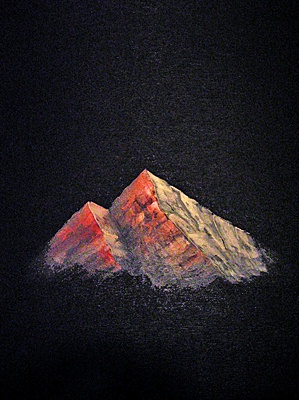All Nonfiction
- Bullying
- Books
- Academic
- Author Interviews
- Celebrity interviews
- College Articles
- College Essays
- Educator of the Year
- Heroes
- Interviews
- Memoir
- Personal Experience
- Sports
- Travel & Culture
All Opinions
- Bullying
- Current Events / Politics
- Discrimination
- Drugs / Alcohol / Smoking
- Entertainment / Celebrities
- Environment
- Love / Relationships
- Movies / Music / TV
- Pop Culture / Trends
- School / College
- Social Issues / Civics
- Spirituality / Religion
- Sports / Hobbies
All Hot Topics
- Bullying
- Community Service
- Environment
- Health
- Letters to the Editor
- Pride & Prejudice
- What Matters
- Back
Summer Guide
- Program Links
- Program Reviews
- Back
College Guide
- College Links
- College Reviews
- College Essays
- College Articles
- Back
The Moon in the Water
She remembers how the moon hit the water that night; how its silvery rays silhouetted the trees. She remembers how its light was clear, and fresh, and bright. It was brighter than it seemed like it should have been. Maybe it was the absence of other light; for the sky was covered in clouds with a gap near the moon. It was lucky that the gap had been there, letting the light of the moon through, and not just a few dim stars.
***
The waters of the lake seemed silvery, almost glowing. A faint breeze rippled them, and the reflections were broken; the light was scattered. The moon in the water was no longer the twin of the one in the sky, but both shone with great luminance. She stared at the moon in the water until her eyes ached, then looked up. She looked up to see the trees, green in daylight, black at night. She looked up further, at the mountain. The snow fields were glimmering, just faint hints of silver against the black sky.
She remembered further back, in the gloaming, when the sun was setting behind her. Its light lit up the lake, then. The lake was like a sun in itself: too bright to look at, seeming to glow with some inner light. But now it was just the moon, the moon and her. The light seemed to dance on the water, a show of colors, almost. Mostly silver, as normal, but if she looked hard enough, she could see the faint traces of blue, and purple. The sky above her was black. It was blacker than she had ever seen it. No light spilled up from earth to desecrate the heavens.
She knew there were clouds, because she could not see the stars, but she could not see them except around the moon. There was a thin, silvery cloud stretched across it. She thought that it might as well just be that the moon was that cloud, and that the glowing ball behind it was a cloud. Would it really make any difference? She knew that it would, that that would mean that clouds could form in outer space, but inside herself she knew, in a completely different way, that it wouldn’t. She would still see the same scene. Everything would look the same, but with different names. She wondered why names made a difference at all.
She began to think. Would changing the name of something change it? Of course not. Would it change her perceptions? No. So why, she wondered, did names matter? She closed her eyes; she always did that when she was thinking hard. It helped her concentrate. Her eyes opened again. Why was she keeping them closed? She didn’t really need to think hard. She could save that for later. Right now she had the scene to think about. She could think about the moon, and the trees, and the lake, and the mountain. She would have time to philosophize later.
She looked at the moon again. She saw the darker patches, the seas, the lighter patches. And she wondered how many people had done this before her. The moon was timeless. She was sure that hundreds of thousands of millions of people had seen it. Everyone had. Or had they? She closed her eyes again, and thought. She thought about how perhaps some people hadn’t really seen the moon. They had only seen a glowing ball in the sky. They had never thought, as she had, about it.
Her eyes snapped open again, drinking in the scene. She knew that this scene would never be repeated, that it would never come back again, at least for her. She knew that she would have to imprint it on her memory. She stared and thought. For her at least, thinking made memories more memorable: if she didn’t remember the memory itself, she remembered thinking about it.
***
She remembers again that night, in all its beauty. For a second she thinks she is there, but then she realizes. She realizes that she is not there, that there is stuff that she needs to be doing. But while she thought it, the memory was solace, comfort. It was real. Maybe. She thinks it was, she is sure it was. But she does not know.

Similar Articles
JOIN THE DISCUSSION
This article has 0 comments.
